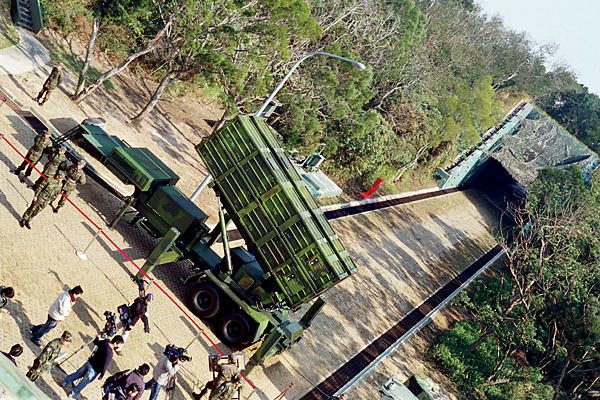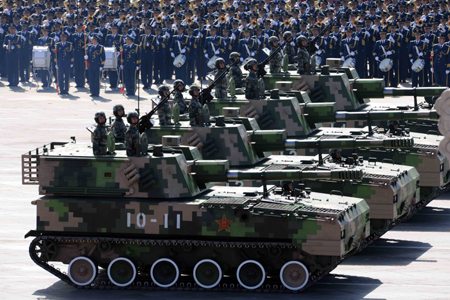Taiwan has developed its first medium-range guided missile that could be used against former rival China, according to a former defence minister in a new book cited by a media report Saturday.
Michael Tsai, a politician turned defence minister in the former government of the China-sceptic Democratic Progressive Party (DPP), revealed in his book due to be published on Sunday that the military successfully developed the missile back in 2008, the Liberty Times said.
In response to the report the country’s defence ministry rounded on Tsai, telling AFP that disclosure of the information “may endanger national security”.
The Times said Tsai knowingly used the term “medium-range guided missile” in his book — entitled “God bless Taiwan” — in contrast to the cruise missiles already in the island’s arsenal.
Taiwan in 2010 confirmed it was mass-producing Hsiungfeng 2E cruise missiles, the island’s answer to the US-made Tomahawk, despite fast warming ties with China.
The cruise missiles could be launched from land or sea, and would be capable of hitting airports and missile bases in southeast China, as well as cities such as Shanghai and Hong Kong. Tsai did not give specifications for the medium range weapon described in his book.
Tensions across the Taiwan Strait have eased since Ma Ying-jeou of the China-friendly Kuomintang came to power in 2008 on a platform of beefing up trade links and allowing in more Chinese tourists. He was re-elected in January 2012.
However China still refuses to renounce the possible use of force against the island in its long-stated goal of re-taking Taiwan, which has ruled itself since the end of a civil war in 1949.
“We have to develop weapons on our own if we are to deter any attacks by China, who has targeted Taiwan with more than 1,000 missiles,” Tsai said in the book.
Taiwanese experts estimate China’s People’s Liberation Army currently has more than 1,600 missiles aimed at the island.
The defence ministry, which often refuses to comment on reports regarding sensitive weaponry development and acquisition, condemned Tsai’s revelations.
“As Mr Tsai has served as the defence minister, he should know that safeguarding national secrets is his due obligation and he should not have revealed sensitive information, a move which may endanger national security. We regret what he has done,” ministry spokesman David Lo told AFP.











